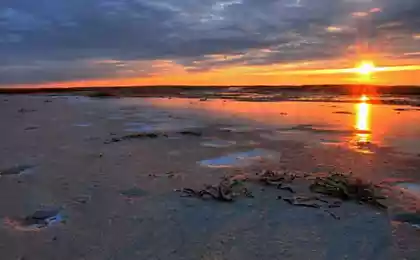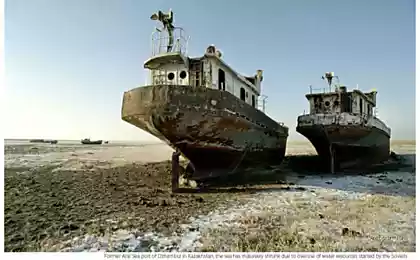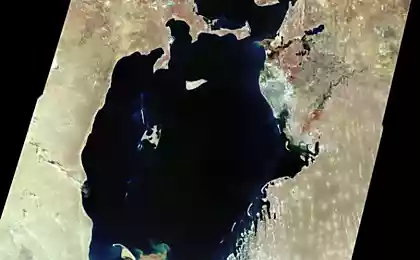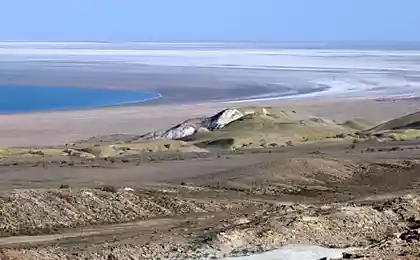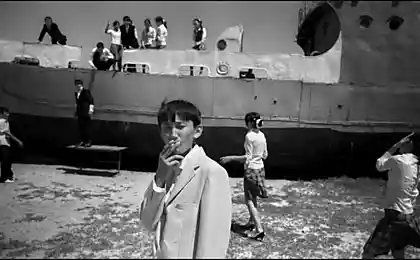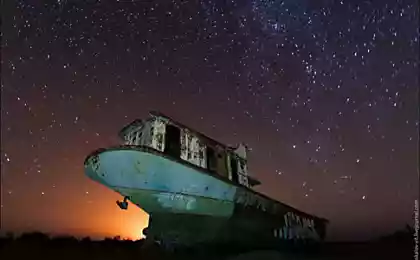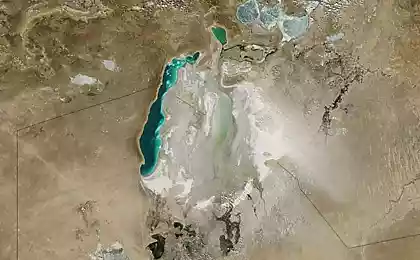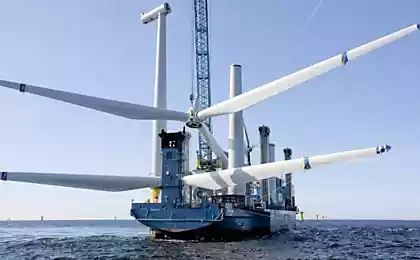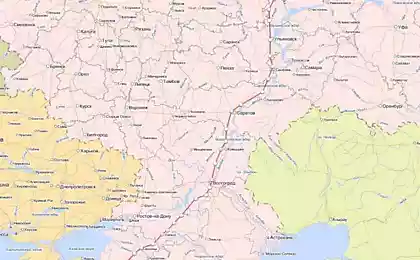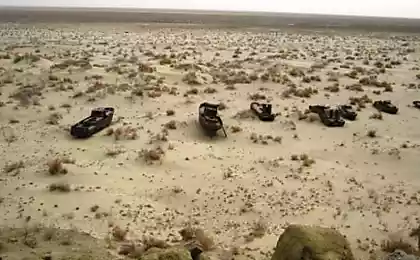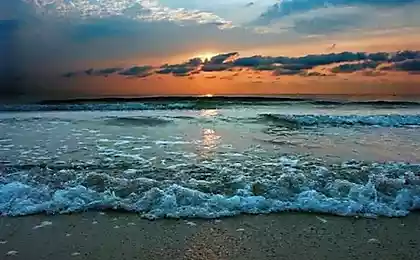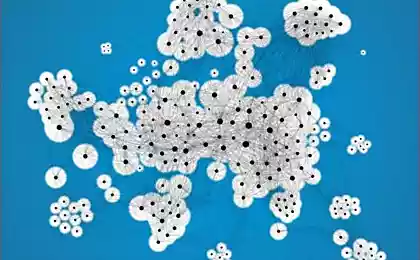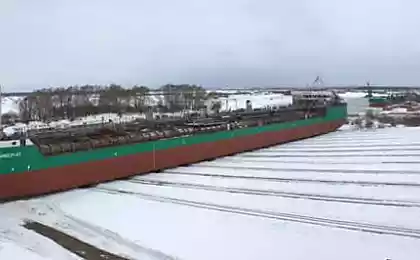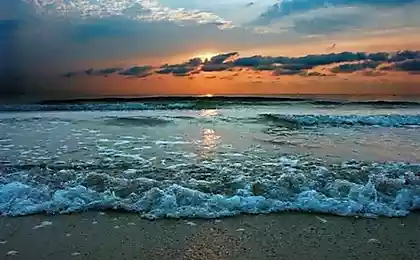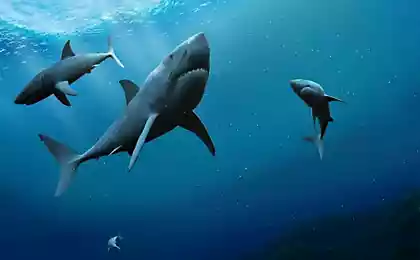2406
This is one of the biggest ecological disasters! As the dry Aral Sea ...
The Aral Sea is only called "the sea." In fact, it is the Great Salt Lake. More precisely, it was great, because now it is almost completely dry, turned into a huge sand and salt desert. One could make a joke about the "submarine in the steppes of Kazakhstan," if it were not so sad. Edition Ofigenno.cc will tell you about one of the biggest ecological disasters - the disappearance of the Aral Sea.
Half a century ago, the Aral Sea was the fourth in the list of the biggest lakes in the world. Now, a huge body of water has almost disappeared from the face of the earth and turned into a desert. At the spot where until recently swayed on the waves of fishing boats, is now walking about ships of the desert - camels. What caused such a dramatic disappearance of the Aral Sea?
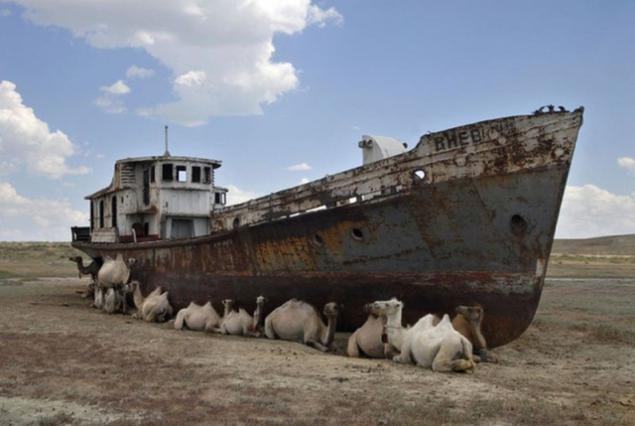
In 1961, the Aral Sea began to rapidly grow shallow. Only for one day the water could get away for a few tens of meters from the old coastline. Gradually, the Aral Sea was divided into two independent water: the Small Aral Sea (or the Northern Aral Sea) and the Big Aral Sea (or South Aral Sea). However, the drying was not over, and now the Big Aral Sea has divided into several smaller ponds.
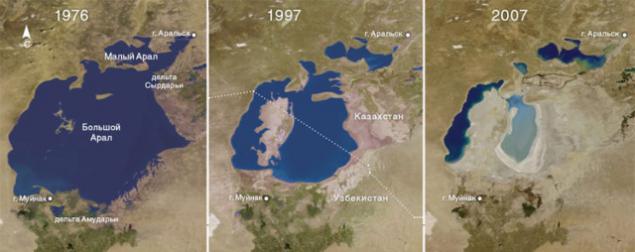
There are many versions of the drying up of the Aral Sea. Some even believe that it is the consequences of testing secret weapons at a local landfill. Allegedly as a result of a particularly powerful explosion formed a geological fault, through which the water flowed into the Aral Sea located below the Caspian Sea.
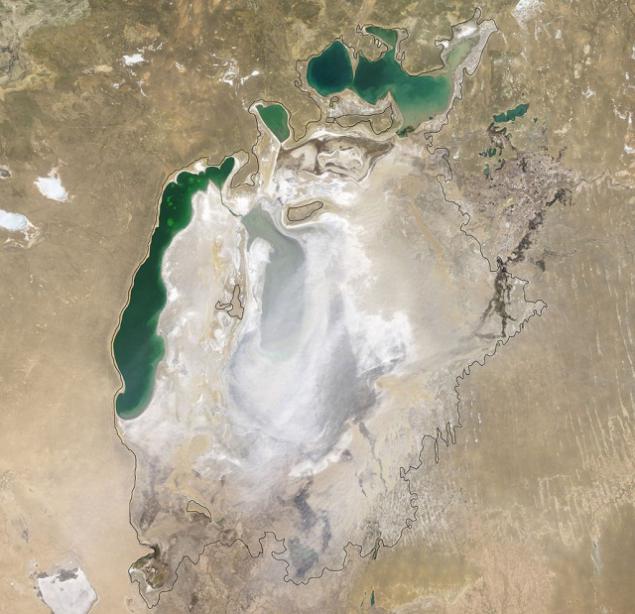
However, most scientists believe that the cause of the disaster more prosaic. In the 50s the Soviet leadership decided to transform the Central Asian republics in the major cotton producers. For the growth of "white gold" took huge areas that were initially too dry and unsuitable for this crop. To ensure the irrigation of cotton we built a system of irrigation canals that take water from the main tributaries of the Aral Sea - the Amu Darya and Syr Darya.
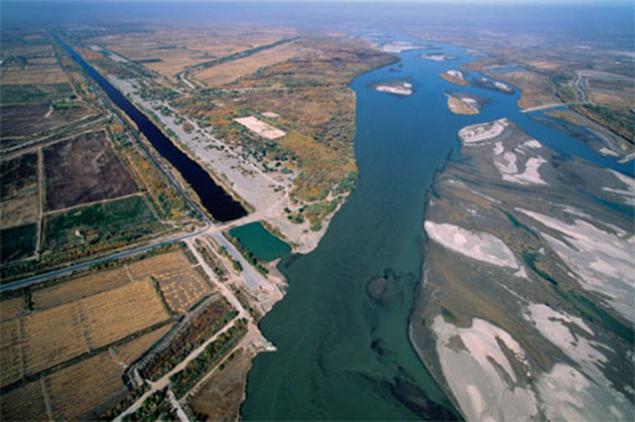
As a result, most of the water began to be spent on irrigation of cotton fields, and the Aral Sea, it is simply not enter. In addition, due to the imperfection of irrigation canals themselves, much of the water simply evaporates even before reaching the plantations.
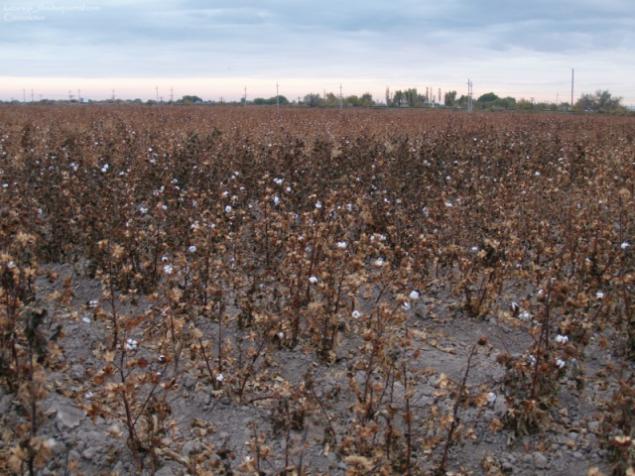
Reducing the river flow resulted in a number of other problems. As fresh water has become less in the Aral Sea began to increase the percentage of salt. This has led to the extinction of many species of animals and plants.
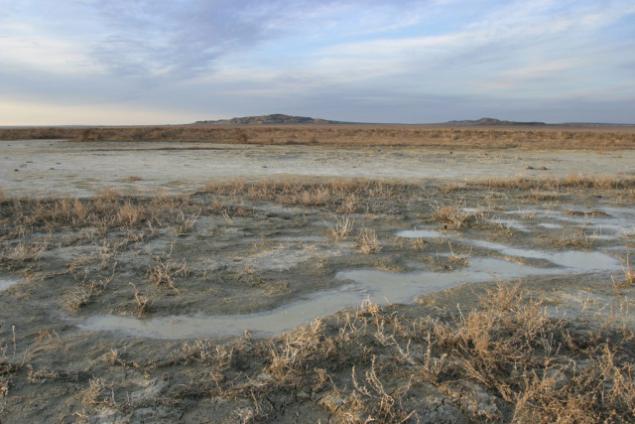
Dry bottom of the Aral Sea has turned into sand and salt desert. Gusts of wind lifted into the air a huge amount of sand, salt and toxic chemicals, which flows here from the cotton plantations. Because of this huge sand storms formed, which covered an area nearby. Inhalation of such air adversely affects the health of humans and animals. Every year, from the bottom of the Aral Sea erode up to 75 million tons of salt!
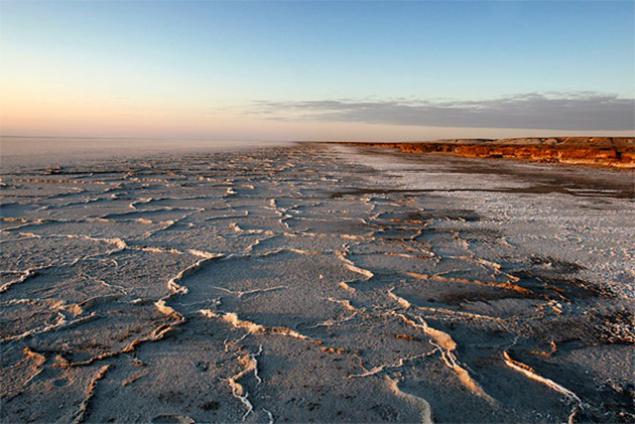
In addition, dust storms have a negative impact on the growth of plants. First and foremost, it is difficult to grow cotton in the vast agricultural fields. Because of this, the plantation of "white gold" require additional watering. This means that to reach the Aral Sea has less water! And the number of dust storms will only increase, causing increased watering again! A vicious circle, however.
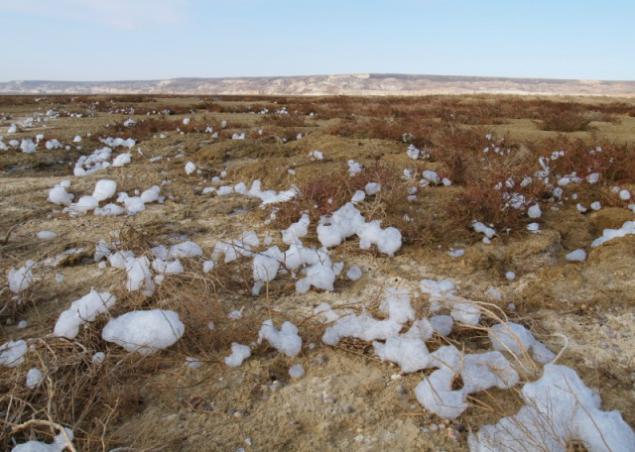
The disappearance of the sea led to the climate change in the region. He became steeper continental. Winter is now colder than ever before, and summers hotter and dry.
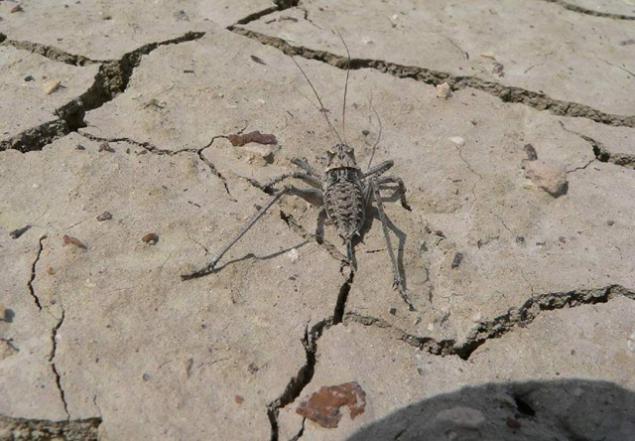
In addition, there is one particular problem. In Soviet times, the island was the Renaissance is a secret test site for the production and testing of biological weapons. Now the sea became shallow and the island merged with the rest of the land. Scientists fear that the deadly germs can survive to our time, and the animals are free to distribute them throughout the continent.
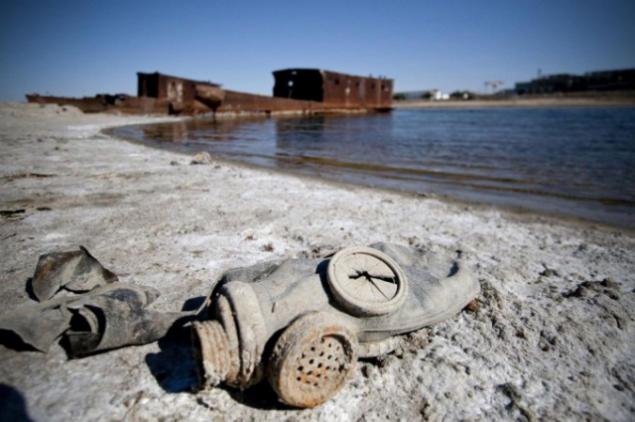
For a long time the problem of the disappearance of the Aral Sea is simply glossed over. The public learned about it only in the 80s during the public. However, the publicity of environmental disaster is almost no way contributed to its solution.
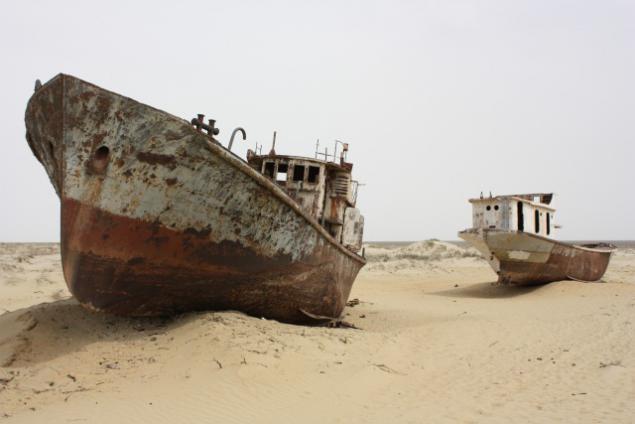
In Soviet times, it was developed by a grand project of water supply of Central Asian republics. For this purpose, it was proposed to reverse the Siberian rivers, and to supply them with water becoming dry Aral and irrigate new cotton plantations. Fortunately, the project remained only on paper. Who knows what new disastrous consequences could result in another change of nature.
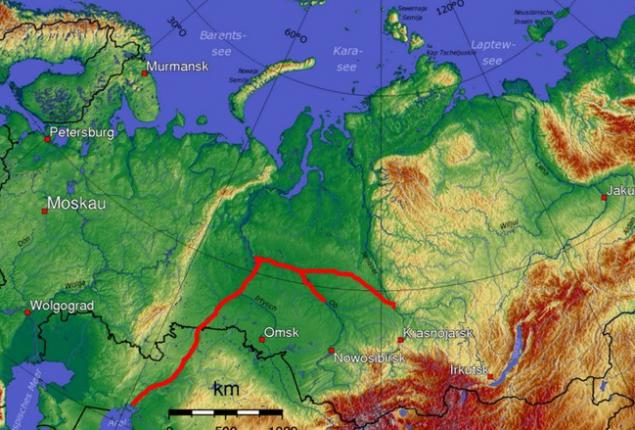
Fully restore the Aral Sea are unlikely to succeed. Even partial recreation is associated with many difficulties. After all, it is necessary to increase the flow of Amudarya and Syrdarya, more than 90% of water which is used for irrigation of cotton fields. However, the government of Uzbekistan and Turkmenistan does not want to reduce the area of their land, because the cultivation of "white gold" is the main income of these countries.
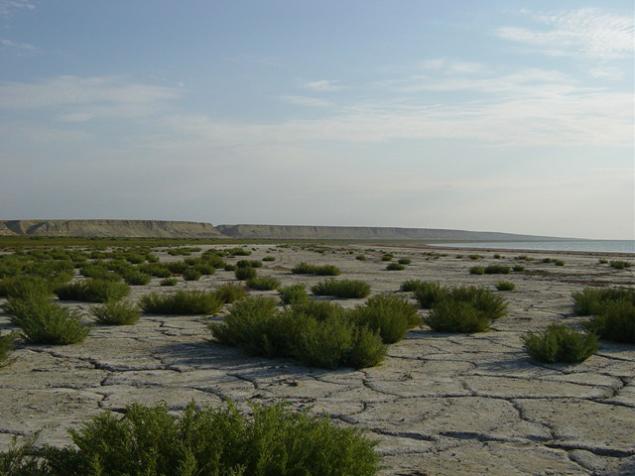
Also addressing prevents the fact that the territory of the Aral Sea belongs to two countries and each of them operates without regard to the neighbors. For example, the government of Kazakhstan for the conservation of the Northern Aral Sea erected Kokaral dam. As a result, it has helped to increase the Small Sea and reduce its salinity, however, it led to a sharp decrease in the Southern Aral Sea. However, this is mostly a problem in Uzbekistan.
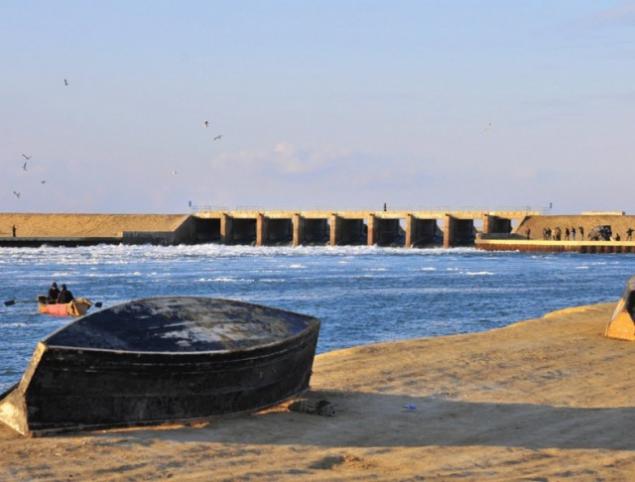
This environmental disaster focused a lot of attention. In particular, a lot of artists have displayed the death of the Aral Sea in his works. For example, the legendary band Pink Floyd has devoted the disappearance of the Aral Sea video for one of his songs.
However, the mere effort of culture is not enough, to solve the problem of the Aral Sea. This requires unity of all mankind. And even if the Aral Sea will not be able to revive, it will at least help to avoid repeating such mistakes in the future. Inform your friends about the disappearance of the Aral Sea, sharing with them this record. After all, the more people will know about this tragedy, the more responsible they will treat our planet.
via ofigenno ru
Half a century ago, the Aral Sea was the fourth in the list of the biggest lakes in the world. Now, a huge body of water has almost disappeared from the face of the earth and turned into a desert. At the spot where until recently swayed on the waves of fishing boats, is now walking about ships of the desert - camels. What caused such a dramatic disappearance of the Aral Sea?

In 1961, the Aral Sea began to rapidly grow shallow. Only for one day the water could get away for a few tens of meters from the old coastline. Gradually, the Aral Sea was divided into two independent water: the Small Aral Sea (or the Northern Aral Sea) and the Big Aral Sea (or South Aral Sea). However, the drying was not over, and now the Big Aral Sea has divided into several smaller ponds.

There are many versions of the drying up of the Aral Sea. Some even believe that it is the consequences of testing secret weapons at a local landfill. Allegedly as a result of a particularly powerful explosion formed a geological fault, through which the water flowed into the Aral Sea located below the Caspian Sea.

However, most scientists believe that the cause of the disaster more prosaic. In the 50s the Soviet leadership decided to transform the Central Asian republics in the major cotton producers. For the growth of "white gold" took huge areas that were initially too dry and unsuitable for this crop. To ensure the irrigation of cotton we built a system of irrigation canals that take water from the main tributaries of the Aral Sea - the Amu Darya and Syr Darya.

As a result, most of the water began to be spent on irrigation of cotton fields, and the Aral Sea, it is simply not enter. In addition, due to the imperfection of irrigation canals themselves, much of the water simply evaporates even before reaching the plantations.

Reducing the river flow resulted in a number of other problems. As fresh water has become less in the Aral Sea began to increase the percentage of salt. This has led to the extinction of many species of animals and plants.

Dry bottom of the Aral Sea has turned into sand and salt desert. Gusts of wind lifted into the air a huge amount of sand, salt and toxic chemicals, which flows here from the cotton plantations. Because of this huge sand storms formed, which covered an area nearby. Inhalation of such air adversely affects the health of humans and animals. Every year, from the bottom of the Aral Sea erode up to 75 million tons of salt!

In addition, dust storms have a negative impact on the growth of plants. First and foremost, it is difficult to grow cotton in the vast agricultural fields. Because of this, the plantation of "white gold" require additional watering. This means that to reach the Aral Sea has less water! And the number of dust storms will only increase, causing increased watering again! A vicious circle, however.

The disappearance of the sea led to the climate change in the region. He became steeper continental. Winter is now colder than ever before, and summers hotter and dry.

In addition, there is one particular problem. In Soviet times, the island was the Renaissance is a secret test site for the production and testing of biological weapons. Now the sea became shallow and the island merged with the rest of the land. Scientists fear that the deadly germs can survive to our time, and the animals are free to distribute them throughout the continent.

For a long time the problem of the disappearance of the Aral Sea is simply glossed over. The public learned about it only in the 80s during the public. However, the publicity of environmental disaster is almost no way contributed to its solution.

In Soviet times, it was developed by a grand project of water supply of Central Asian republics. For this purpose, it was proposed to reverse the Siberian rivers, and to supply them with water becoming dry Aral and irrigate new cotton plantations. Fortunately, the project remained only on paper. Who knows what new disastrous consequences could result in another change of nature.

Fully restore the Aral Sea are unlikely to succeed. Even partial recreation is associated with many difficulties. After all, it is necessary to increase the flow of Amudarya and Syrdarya, more than 90% of water which is used for irrigation of cotton fields. However, the government of Uzbekistan and Turkmenistan does not want to reduce the area of their land, because the cultivation of "white gold" is the main income of these countries.

Also addressing prevents the fact that the territory of the Aral Sea belongs to two countries and each of them operates without regard to the neighbors. For example, the government of Kazakhstan for the conservation of the Northern Aral Sea erected Kokaral dam. As a result, it has helped to increase the Small Sea and reduce its salinity, however, it led to a sharp decrease in the Southern Aral Sea. However, this is mostly a problem in Uzbekistan.

This environmental disaster focused a lot of attention. In particular, a lot of artists have displayed the death of the Aral Sea in his works. For example, the legendary band Pink Floyd has devoted the disappearance of the Aral Sea video for one of his songs.
However, the mere effort of culture is not enough, to solve the problem of the Aral Sea. This requires unity of all mankind. And even if the Aral Sea will not be able to revive, it will at least help to avoid repeating such mistakes in the future. Inform your friends about the disappearance of the Aral Sea, sharing with them this record. After all, the more people will know about this tragedy, the more responsible they will treat our planet.
via ofigenno ru
20 stunning portraits of the most famous actresses of the Soviet ... The beauty and peace in one bottle!
For dessert, the café serves ... concert numbers. Children love it!
